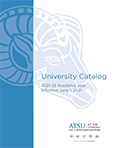Certificates in Health Sciences
The Health Sciences programs also offer our specialty concentrations as independent certificates in health sciences for those who wish to gain the knowledge and expertise of one or more of these concentrations. Each certificate contains four courses (12 credits) and can be completed 100 percent online. Those who go on to complete the full Doctor of Health Sciences or Masters of Health Science may transfer in 9 credits from the completed certificate.
Graduate health sciences certificates include:
- Fundamentals of Education
- Global Health
- Leadership and Organizational Behavior
Program essentials
Certificates in Health Sciences
Fundamentals of Education Certificate
The purpose of this health science certificate is to provide additional, specialized knowledge; advance critical thinking; and promote theory application in the area of post-secondary education. Studying the components of designing, developing, and managing courses using the latest theory and techniques of teaching and learning will be the emphasis of this health science certificate. This certificate may be used for career advancement and preparation of health professionals for roles in academia or healthcare education.
Global Health Certificate
The purpose of this certificate in global health is to provide additional, specialized knowledge; advance critical thinking; and promote theory application in the area of global health. This added specialization is critical to understanding global health issues and provides future leaders with the tools necessary to apply current knowledge and formulate innovative solutions to achieve improvement in the quality of health for underserved populations.
Leadership and Organizational Behavior Certificate
The purpose of this health science certificate is to provide additional, specialized knowledge, advance critical thinking, and promote theory application in the area of healthcare administration. Understanding leadership theory through real-world application is the focus of the course work and underscores ATSU’s defining mission of leadership, innovation, serving underserved communities and meeting the needs of the whole person body, mind, and spirit.
Requirements
Candidates applying for admission must have the following:
-
Application:
- Completed and signed admissions application along with a nonrefundable application fee.
-
Academic:
- An accredited bachelor’s degree from a university recognized by the Council for Higher Education Accreditation. Applicants who received their qualifying degree from a university outside the United States will have to provide a degree equivalency evaluation.*
- Official transcript from the qualifying degree-granting institution. For students using VA benefits transcripts for all institutions attended are required.
- Minimum Cumulative Grade Point Average (CGPA) of 2.5 (on a 4.0 scale) at the qualifying degree institution.
-
Elements of Success:
- A current resume
- Completion of an essay
- English Proficiency **
- Meet technology requirements***
*Applicants who have graduated from a foreign college or university should submit acceptable evidence of U.S. degree/course equivalency. All course work taken at the foreign institution must be evaluated for American institution equivalence by one of the following services:
- World Education Services P.O. Box 5087 Bowling Green Station New York, NY 10274-5087 p: (212) 966-6311 f: (212) 739-6139 info@wes.org
- Educational Credential Evaluators, Inc. P.O. Box 514070 Milwaukee, WI 53203-3470 (414) 289-3400
- American Assn. of Collegiate Registrars & Admissions Officers One Dupont Circle, NW, Suite 520 Washington, DC 20036-1135 (202) 293-9161
- Josef Silny & Associates, Inc. International Education Consultants 7101 SW 102 Avenue Miami FL 33173 p: (305) 273 -1616 f: (305) 273 -1338 info@jsilny.com
- Intl. Education Research Foundation, Inc. PO Box 3665 Culver City, CA 90231-3665 (310) 258-9451
**Applicants are required to demonstrate proficiency in English when applying to A.T. Still University’s College of Graduate Studies. Written and spoken proficiency in the English language may be demonstrated by one of the following options:
- Option 1 - English is your first language.
- Option 2 - Graduated from a regionally accredited four year college/university in the United States with a BA/BS or graduate degree.
- Option 3 - You are demonstrating your English proficiency by submitting acceptable scores on the Test of English as a Foreign Language (TOEFL).
Accepted test types for CGHS are: The Computer Based Test (CBT), Internet Based Test (iBT), or the Paper Based Test (PBT) are accepted. The following are the minimum required score based on test type:
- CBT - minimum total score of 213
- iBT - minimum total score of 80
- PBT - minimum total score of 550
The TOEFL is administered by TOEFL/TSE Services, P.O. Box 6151, Princeton, NJ, 08541-6151, USA 609. 771.7100. A.T. Still University’s institutional code is 0339. Please be sure to include this information when you submit your application packet. TOEFL Educational Testing Services P.O. Box 6151 Princeton, NJ 08541-6151, 609.771.7100 ***ATSU technology requirements
Fundamentals of Education Certificate
-
Educational Program Evaluation +
-
Credits: 3
Students will be introduced to educational program assessment and evaluation. Topics include meeting health programmatic accreditation requirements, creating academic institutional effectiveness plans, program creation and revision, curricular evaluation, and strategic program assessment at the college and university level. Other topics discussed include evaluating certification and licensure pass rates, retention and attrition statistics, and integrating advisory board guidance into educational programs.
-
Credits: 3
-
Contemporary Teaching & Learning Concepts +
-
Credits: 3
This course provides an overview of prominent teaching and learning models in higher education. Recently, much research in academia has focused on determining which models best educate students in the most cost-effective and efficient ways possible. Some of the models to be examined include: learner-centered teaching, student-centered learning, and inter-professional learning. Students will explore the research and practical application of these models for managing and delivering course content, promoting knowledge transfer, and determining best practices for effective learning.
-
Credits: 3
-
Instructional Design and Program Planning +
-
Credits: 3
Students will examine the use of a systematic process-based on learning theory to plan, design, and implement effective instruction for health professions education. Students will use educational taxonomies for the creation of instructional objectives for traditional and competency-based programs, and they will learn techniques for mapping curriculum.
-
Credits: 3
-
Elective +
-
Credits: 3
Selected from the other HSc concentration areas.
-
Credits: 3
Global Health Certificate
-
Public Health Emergency Preparedness and Disaster Response +
-
Credits: 3
For years public health has played a critical role in responding to emergencies and disasters of all kinds. This course examines the roles and responsibilities of public health during a disaster and emergency. You will examine the various types of disasters and emergencies, including bioterrorism, infectious disease outbreaks, and natural disasters, and learn how a response is planned, initiated and coordinated. This course will also introduce you to emergency preparedness planning and common concepts, principles, terminology, and organizational processes used including the National Response Framework (NRF), Incident Command System (ICS) and the National Incident Management System (NIMS).
-
Credits: 3
-
Global Health Issues +
-
Credits: 3
This course provides an introduction to important global health issues, including determinants of health, key areas of disease burden, and the role that new health technologies can play in solving these problems. The goal of the course is to expand students’ understanding of the impact of infectious and chronic diseases on the world’s population with particular attention paid to the health status of women, children, and the poor. Students will examine case studies of successful global health interventions to understand features of successful programs.
-
Credits: 3
-
Globalization & World Politics +
-
Credits: 3
This course introduces the theoretical and practical issues associated with the radical global processes that are now affecting human life locally and globally. The course emphasizes the political-economic, cultural, institutional, technological, and ecological implications of globalization and allows students to evaluate whether these processes pose opportunities or challenges to individuals, societies, and the global community.
-
Credits: 3
-
Elective +
-
Credits: 3
Selected from the other HSc concentration areas.
-
Credits: 3
Leadership and Organizational Behavior Certificate
-
Organizational Behavior +
-
Credits: 3
This course examines how the personal characteristics of organizational members influence the effectiveness and productivity of organizations and the job satisfaction of its members. It is believed that organizations are comprised of three levels: the individual, the group or department, and the organization itself. This course will focus on the problems and challenges leaders face in dealing with the individual and the small groups in the organization. Special attention will be given to the role of teams in organizations, the stages of team development, and actions that can support the development of effective teams. The realities of interpersonal processes are considered through examination of the roles of power, politics, and conflict in organizations. The human side of organizational change is then explored with a focus on understanding how and why people react to organizational change and identifying opportunities for enhancing the effective implementation of change.
-
Credits: 3
-
Healthcare Economics and Financial Management +
-
Credits: 3
Students will use key financial and economic principles to examine executive level decisions relative to capitalization, credit ratings, debt capacity, alternate funding sources, business plan development, and overall organizational finance strategy. The concepts will be considered from both non-profit and for-profit healthcare organizational perspectives.
-
Credits: 3
-
Strategic Change Management for Healthcare Organizations +
-
Credits: 3
In this executive course, students will investigate and integrate change management practices to strategically position the healthcare organization for the future. Students will assess their organization’s current strategic position and apply relevant theoretical models and the necessary change management practices resulting in organizational adaptability.
-
Credits: 3
-
Elective +
-
Credits: 3
Selected from the other HSc concentration areas.
-
Credits: 3
Tuition
Review tuition and fees for the Certificates in Health Sciences program. Please note tuition and fees are subject to change.
Financial Aid
Federal financial aid is not available for certificate and non-degree enrollments.Dr. Alexander completed his doctor of philosophy degree at Arizona State University (2003) in curriculum and instruction with an emphasis in exercise and wellness. He earned his Master of Science in exercise physiology from Brigham Young University and his bachelor’s degree in health promotion.
In addition to his academic preparation, Dr. Alexander holds numerous health and fitness professional certifications; namely, Clinical Exercise Specialist® from the American College of Sports Medicine (ACSM) and Certified Personal Trainer and Corrective Exercise Specialist from the National Academy of Sports Medicine (NASM). Consequently, Dr. Alexander has served as a personal and group fitness trainer primarily working closely with the older adult population.
Kathleen DiCaprio, PhD, previously served as an assistant professor of microbiology and immunology at Touro College of Osteopathic Medicine in New York, as well as the director of content development and education at Oceania University of Medicine. In addition, she served as an instructor and curriculum consultant for Kaplan Medical.
Dr. DiCaprio has a history of teaching undergraduate, graduate, and medical courses in areas related to infectious diseases and infection control, immunology, public health, and emergency preparedness. She comes to ATSU with an impressive history as a faculty member and administrator in higher education of the medicine and the health sciences.
Dr. DiCaprio earned her BS in biochemistry from The College of Saint Rose and her PhD in pathology from Uniformed Services University of the Health Sciences. Her prior research focused on studying pathogenesis of maximum containment (Biosafety-level 4) viruses such as Ebola and Marburg in non-human primate models. Her research efforts contributed to the development of potential vaccines and therapeutics against these deadly viruses, and her work has been profiled in numerous publications and press releases.
Dr. Mathieson completed her PhD in sociology at Arizona State University, with a focus in the areas of statistics and sociology of health. Before coming to ATSU, she spent five years as a research analyst and biostatistician at Maricopa Medical Center, a 449-bed teaching hospital in Phoenix.
While at Maricopa Medical Center, Dr. Mathieson taught research and statistics courses to medical residents in various specialties, and co-authored research articles with faculty and residents in areas such as obstetrics and gynecology, emergency medicine, pediatrics, family practice, and public health. Since coming to ATSU, Dr. Mathieson has collaborated on both quantitative and qualitative research projects in various programs, and has begun her own research in the area of teaching and learning. She is also interested in research ethics and is the vice-chair of the ATSU-Arizona Institutional Review Board. Dr. Mathieson enjoys working with students, particularly in the process of mentoring them through research projects.
Dr. Matthews completed his PhD in education at Southern Illinois University with an emphasis in adult and vocational/technical education (workforce education and development). He recently completed a Doctor of Health Sciences (DHSc) degree at Nova Southeastern University. He also holds graduate degrees in education (post-secondary administration and supervision) and museum studies. His professional medical preparation is in the field of diagnostic imaging. Dr. Matthews is certified in diagnostic radiography, cardiovascular-interventional technology, and magnetic resonance imaging by the American Registry of Radiologic Technologists. Prior to coming to ATSU, he was the program director of the radiography program at Southern Illinois University.
Dr. Matthews has an extensive teaching history at both the undergraduate and graduate levels. In addition to teaching most courses in the ATSU Health Sciences curriculum, he has taught numerous courses on medical and educational history, his primary research interest. He enjoys qualitative-historical research and has served as a subject matter expert for several state and national organizations and museums on the topic of 19th century American medicine.

Assistant Professor
Dr. Weemer completed her Doctorate of Health Sciences degree at Indiana State University, with focus in the areas of health promotion, physical activity and wellness. She earned a Master of Science in physical education from Eastern Illinois University and also a Master of Science in Teaching health education from Northern Illinois University. She earned her undergraduate degree in dietetics.
In addition to her academic preparation, Dr. Weemer is a Master Certified Health Education Specialist (MCHES). She has an extensive history of teaching undergraduate and graduate health science courses in various modalities, along with experience revising courses and curriculums. Dr. Weemer’s research interests focus on the scholarship of teaching and learning, along with examining risk and protective factors surrounding adolescent and college student health.
Marisa Hastie, EdD, MS, ACSM-EP, PN-1, FACSM is the Dean of the College of Graduate Health Studies at AT Still University. Dr. Hastie received her doctor of education from George Fox University (2013), her master of science in exercise and sport science with an emphasis in biomechanics from the University of Oregon (2003), and her bachelor of science in exercise science from Gonzaga University (2001). She is a fellow of the American College of Sports Medicine (ACSM) and is a certified Exercise Physiologist.
Prior to joining ATSU, she was a Professor of Exercise Science and Program Chair for the Exercise Science Program at Lasell University (Newton, MA). Dr. Hastie also served as the Faculty Fellow for the Fuss Center for Research on Intergenerational Education and Aging and received the deWitt Excellence in Educational Leadership Award from Lasell University. Dr. Hastie served as Faculty Chair of the University’s governance system.
Dr. Hastie has served in several leadership roles at the regional and national level of the ACSM, which include her current roles on the Professional Education Committee at the national level and as the President-Elect for the New England chapter. Her research interests have included exploring the connection between lifelong physical activity and long-term health outcomes, the relationship between exercise training and cognition, and the effects of discrimination experiences on health-related coping behaviors.
Dr. Hastie has extensive experience in online program development, teaching, and assessment. She developed an online Master of Science in Nutrition for Human Performance program and has 18 years of experience in both synchronous and asynchronous teaching formats. She became an educator because she strongly believes in the development of the whole student as a crucial responsibility of higher education institutions.
Dr. Matthews completed his PhD in education at Southern Illinois University with an emphasis in adult and vocational/technical education (workforce education and development). He recently completed a Doctor of Health Sciences (DHSc) degree at Nova Southeastern University. He also holds graduate degrees in education (post-secondary administration and supervision) and museum studies. His professional medical preparation is in the field of diagnostic imaging. Dr. Matthews is certified in diagnostic radiography, cardiovascular-interventional technology, and magnetic resonance imaging by the American Registry of Radiologic Technologists. Prior to coming to ATSU, he was the program director of the radiography program at Southern Illinois University.
Dr. Matthews has an extensive teaching history at both the undergraduate and graduate levels. In addition to teaching most courses in the ATSU Health Sciences curriculum, he has taught numerous courses on medical and educational history, his primary research interest. He enjoys qualitative-historical research and has served as a subject matter expert for several state and national organizations and museums on the topic of 19th century American medicine.
A.T. Still University of Health Sciences is accredited by the Higher Learning Commission
230 S. LaSalle Street, Suite 7-500,
Chicago, IL 60604
Phone: 800.621.7440 | Fax: 312.263.7462
Email: info@hlcommission.org
Certificates in Health Sciences program faculty
Application
Review application deadline dates
For additional information contact an Enrollment Counselor:
877.626.5577 or cghsonlineadmissions@atsu.edu
Request Information
Have a question for ATSU?
Submit an inquiry for more information on your program of interest.
Missouri Campus
800 W. Jefferson Street Kirksville, MO 63501
877.626.5577
cghsonlineadmissions@atsu.edu







